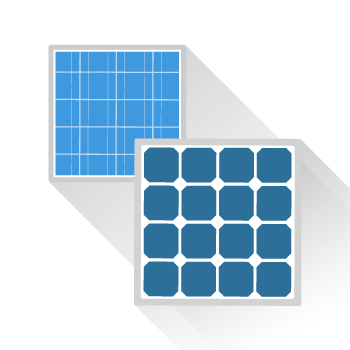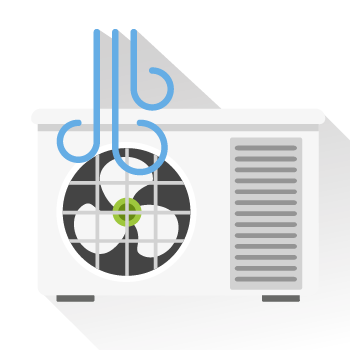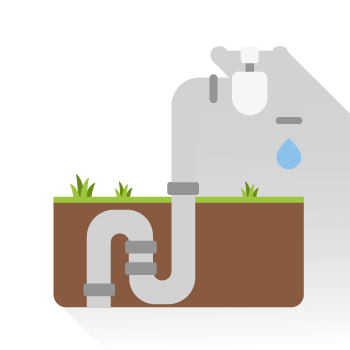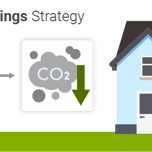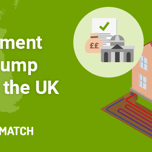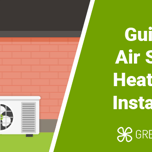Answer these simple questions and we will find you the BEST prices
Which type of solar quotes do you need?
It only takes 30 seconds
100% free with no obligation

Get up to 4 quotes by filling in only 1 quick form

Slash your energy bills by installing solar panels

For the average 2-3 bedroom house
- GreenMatch
- UK Announces Zero VAT on Solar Panels and Heat Pumps
0% VAT on Solar Panels and Heat Pumps (October 2025)

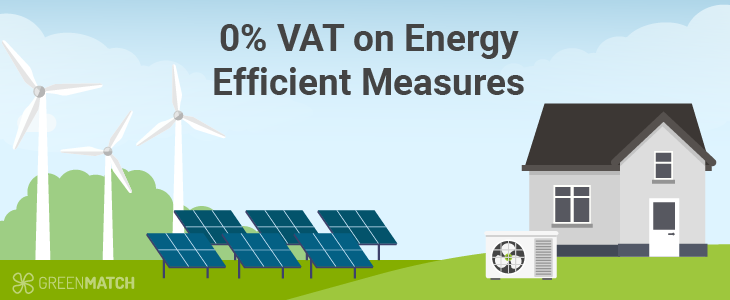
No VAT on Energy Efficient Measures for the Next Five Years!
Amidst unfavourable events such as the energy price crisis, Russia waged war on Ukraine, and the subsequent insecurities of the global energy market, the UK government has released the Spring Statement 2022, which places huge focus, among other initiatives, on helping households with rising energy bills.
Chancellor Rishi Sunak announced cutting VAT from five per cent to zero upon installing energy-efficient systems such as solar panels, heat pumps and insulation. According to him, “A family having a solar panel installed will see tax savings worth over £1,000 and savings on their energy bill of over £300 per year."
On the 11th of December, 2023, the Government disclosed the outcomes of their solicited information. They declared that the assortment of ESMs qualifying for VAT alleviation would be broadened to encompass additional technologies, such as water-source heat pumps. Furthermore, they declared an extension of this relief to "installations in structures exclusively utilized for relevant charitable endeavours".
This means that homes will benefit from zero VAT on energy-efficient measures for five years as the scheme began on April 2022 and will last until 2027. Furthermore, these technologies will be eligible for the 0% rate until 31 March 2027 and the 5% reduced rate from 1 April 2027.
An average UK home can expect to pay between £3,800 - £12,200 for installing solar panels and between £8,750 - £14,050 for an air source heat pump system. To know more about ASHP systems, read our guide here: What is an air source heat pump?
Heat pumps, which are incredibly energy efficient because they use electrical energy to move heat rather than generate it, have historically struggled to compete with cheap natural gas financially. Recently, the cost drops in solar photovoltaics have been so massive that our research has shown solar powered air-source heat pumps finally make economic sense for the average home even in colder climates. With the price increases and instability of natural gas prices, coupled to the recent announcement of the UK government to scrap the 5% VAT for homeowners for both solar panels and heat pumps, now is excellent time to invest in greening both your home’s electricity and heating supply.An investment in solar powered heat pumps is not only an economic investment that will pay financial dividends for decades, but you are also helping to protect the planet for your children and cut down on Russian military funding fueled by natural gas exports.

Joshua M. Pearce is the John M. Thompson Chair in Information Technology and Innovation. He holds appointments at Ivey Business School and the Department of Electrical & Computer Engineering at Western University. He runs the Free Appropriate Sustainability Technology research group.
Regarding domestic solar panels, the scrapping of VAT and other solar panel grants, such as the Smart Export Guarantee, is expected to help bear the installation cost of solar panels, which many UK households find very expensive.
VAT Charges for Installations: Residential vs. Business
For residential properties, installing solar panels is subject to a 0% VAT charge. However, it's important to note that the VAT reduction only applies if you're having the solar panels installed by a professional. This means that the 0% VAT doesn't apply to DIY solar panel installations, so be sure to consider this before moving forward with installing your solar system yourself.
On the other hand, business premises are subject to a standard VAT rate of 20% for solar panel installations. This higher rate can impact the financial viability of such projects for businesses.
| Stage | Type | VAT Charged? | VAT Rate |
|---|---|---|---|
| Purchase & Installation | Typical | Yes | 20% |
| Financing | Hire purchase, Solar leasing, PPA, Grants | Yes | 20%, 20%, 20%, 0% |
| Grid Export Income | VAT-reg., Non VAT-reg. | Yes, No | 20%, 0% |
VAT Recovery for Businesses
Businesses can recover the VAT paid on installations through input tax claims if the panels are used for taxable business activities. This can mitigate the impact of the initial 20% VAT charge. However, if the business activities are exempt or the solar panels are used for non-business purposes, VAT recovery may not be possible.
Is It the Right Time to Invest in Renewables?
In light of the current global situation around energy prices, it is without a doubt the best time to invest in clean, renewable energy that will, in the future, protect homes from the volatility of the fluctuating market and increasing gas prices in the UK. The VAT on renewables was 5%, which was already low, but scrapping that off will potentially prevent people from paying excessively on their energy bills.
The UK's initiatives to push green energy into private households are just the beginning of a green and clean future, and we can only hope that this incentivises people to make energy-efficient choices for their homes. The new ECO+ scheme will be launched in Spring 2023. Other regional plans like solar panels Scotland grants are worth looking out for.
Getting offers from certified installers to make a cost-effective purchase is all the more important, as this is a long-term investment. Greenmatch is here to help you receive such offers from certified installers with expertise in providing tailor-made solutions to suit your home.

Valli has been writing well researched articles about renewable energy, sustainability and green technologies for GreenMatch since 2017. Her work has been published in various media such as Entrepreneur, Business Insider, Canadian Geographic, uSwitch, and eCycle.
We strive to connect our customers with the right product and supplier. Would you like to be part of GreenMatch?

Stay up to date with energy saving tips and grant alerts
Receive offers, marketing and promotions via email from Leads.io about GreenMatch and our brands/partners to help you save.
Thank you for subscribing to our newsletter!
Your email has been successfully added to our list. We look forward to sharing our latest updates with you soon!

